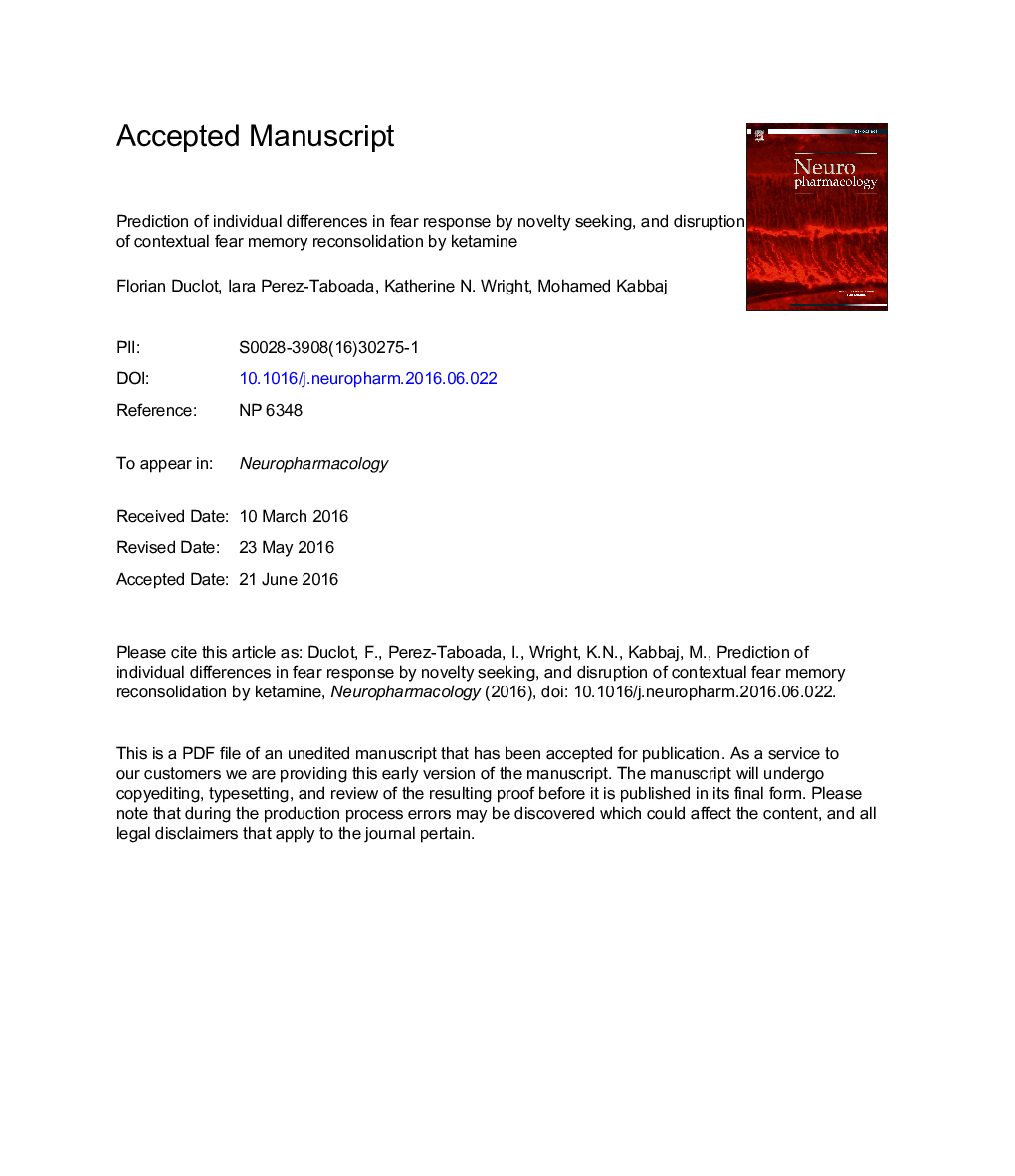| Article ID | Journal | Published Year | Pages | File Type |
|---|---|---|---|---|
| 5813205 | Neuropharmacology | 2016 | 44 Pages |
Abstract
Only a portion of the population exposed to trauma will develop persistent emotional alterations characteristic of posttraumatic stress disorder (PTSD), which illustrates the necessity for identifying vulnerability factors and novel pharmacotherapeutic alternatives. Interestingly, clinical evidence suggests that novelty seeking is a good predictor for vulnerability to the development of excessive and persistent fear. Here, we first tested this hypothesis by analyzing contextual and cued fear responses of rats selected for their high (high responders, HR) or low (low responders, LR) exploration of a novel environment, indicator of novelty seeking. While HR and LR rats exhibited similar sensitivity to the shock and cued fear memory retention, fewer extinction sessions were required in HR than LR animals to reach extinction, indicating faster contextual and cued memory extinction. In a second part, we found an effective disruption of contextual fear reconsolidation by the N-methyl-d-aspartate receptor antagonist ketamine, associated with a down-regulation of early growth response 1 (Egr1) in the hippocampal CA1 area, and up-regulation of brain-derived neurotrophic factor (Bdnf) mRNA levels in the prelimbic and infralimbic cortices. Altogether, these data demonstrate a link between novelty seeking and conditioned fear extinction, and highlight a promising novel role of ketamine in affecting established fear memory.
Keywords
CA1EGR1BLAILCSSCCA3PLCITIACCMPFCN-methyl-d-aspartateNMDAbasolateral amygdalaBDNFCeAcornu ammonis 3cornu Ammonis 1Central amygdalaPosttraumatic stress disorderPTSDFear extinctionIndividual differencesFear conditioningnovelty seekingSaline Sodium Citratedentate gyrusinter-trial intervalBrain-derived neurotrophic factorinfralimbic cortexanterior cingulate cortexmedial prefrontal cortexprelimbic cortexconditioned stimulushigh responderlow responderearly growth response 1Ketamine
Related Topics
Life Sciences
Neuroscience
Behavioral Neuroscience
Authors
Florian Duclot, Iara Perez-Taboada, Katherine N. Wright, Mohamed Kabbaj,
